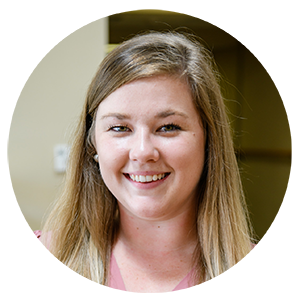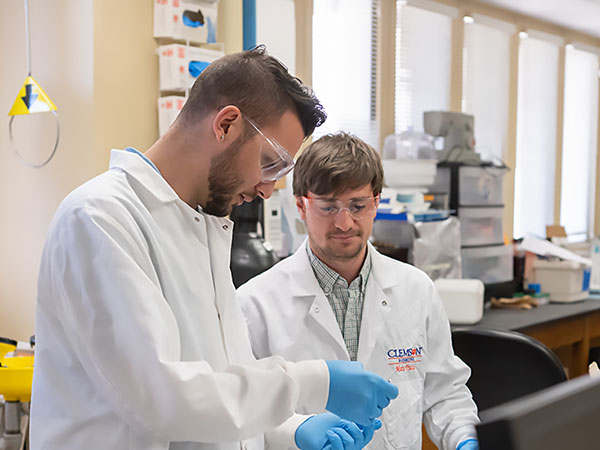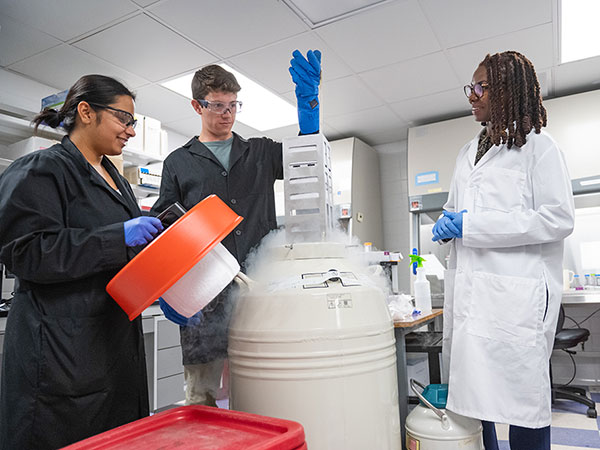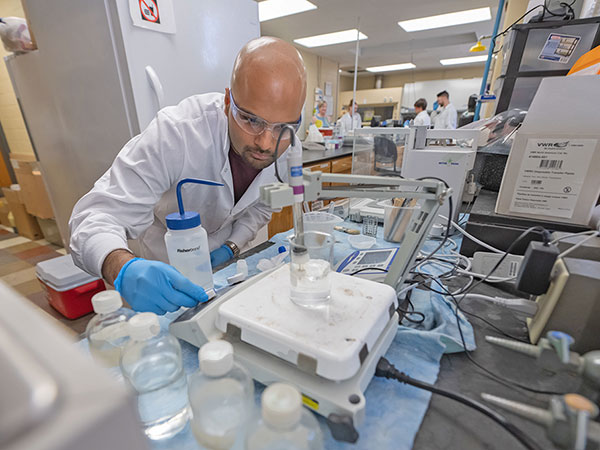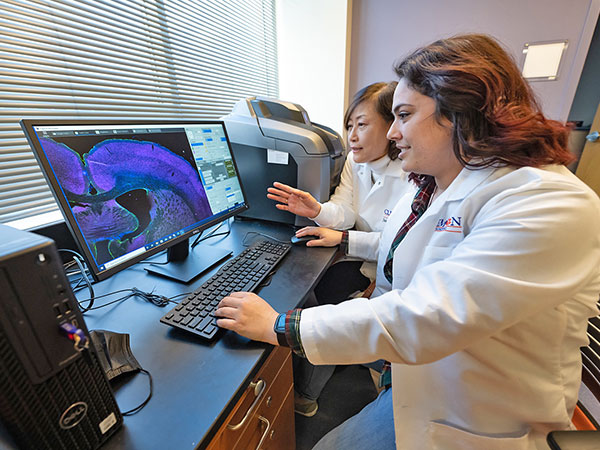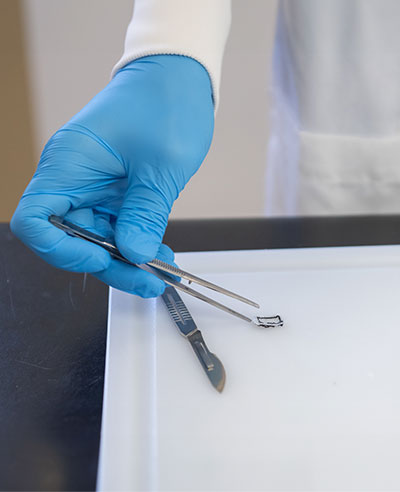Mixing Engineering with Biology
Grow human cells on aortic roots, study how replacement hips wear over time, and design implants using living and nonliving materials. These remarkable breakthroughs in technology are just a few examples of research happening in Clemson's bioengineering labs. Through classes and labs, you'll gain an extensive understanding of biology, biochemistry and physiology and will graduate with the capability to apply advanced mathematics to solve the ever-increasing problems that require engineering to mix with biology.
Throughout your time at Clemson, you will work side-by-side in the lab with your professors on research into how engineers — in collaboration with physicians — can support the human body to prevent and solve medical problems.
Global Influence | Cutting-Edge Research
Significant Contributions
Committed to Excellence
The Department of Bioengineering serves the State of South Carolina and the nation through teaching, research, and outreach in the biomedical sphere. In South Carolina alone, our centers bring together researchers, clinicians and other healthcare professionals from across the state to advance biomedical research. Clemson researchers collaborate closely with colleagues at the Medical University of South Carolina and Prisma Health.
Over the past decades, the Bioengineering Department has impacted the field globally by educating a top-rated workforce and documenting advances in regenerative medicine, molecular modeling, wound healing, drug delivery, and biomechanics.
“One of the most important things I did while a BIOE graduate student was to evolve as a researcher and collaborator. I went from being shy and doing everything on my own to someone who knows how to find experts and confidently reaches out for support when appropriate.”
Kayla WilsonPh.D. '16
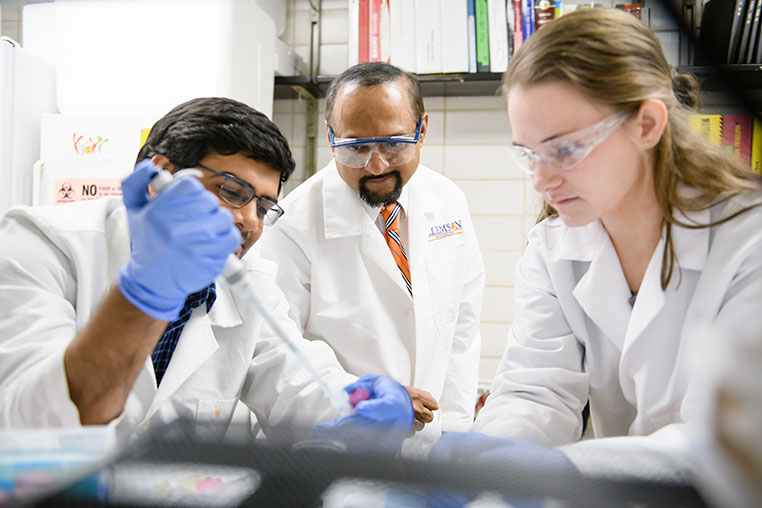
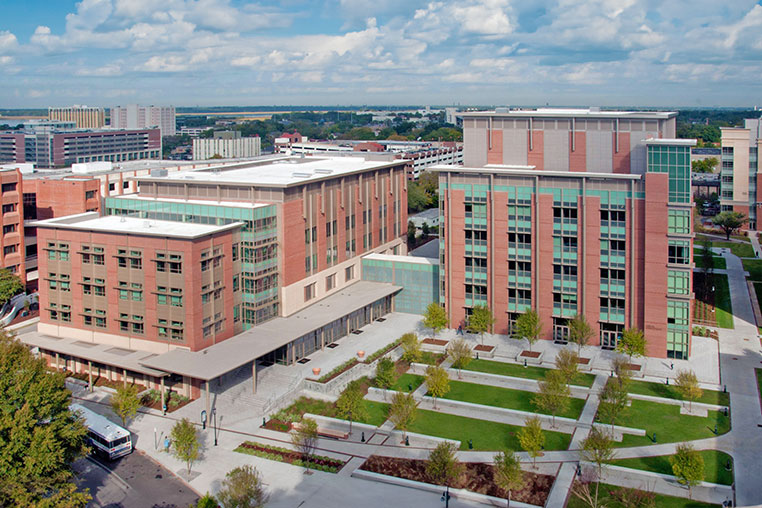
Advancing Research
World-Class Research Centers
Clemson University is a premier public research university equipped with state-of-the-art facilities and provides access to world-class research centers.
- Clemson University Biomedical Engineering Innovation Campus (CUBEInC)
- Bioengineering Center for Regeneration and Formation of Tissues (SC BioCRAFT)
- South Carolina Translational Research Improving Musculoskeletal Health Center (SC TRIMH)
- Biosystems Research Complex (BRC)
- MUSC Clinical Research Facility
At both the main campus and Clemson University Biomedical Engineering Innovation Campus in Greenville, students work with state-of-the-art equipment. At the CU-MUSC Program at the Medical University of South Carolina in Charleston, students have the advantage of being mentored by Clemson Faculty while working with physicians to solve problems of immediate concern.
“There's a lot of history here, a lot of great professors, a lot of different research going on here that covers a broad area. It's more of a family culture here.”
Timmy SamecM.S. '20, Ph.D. '21
Making an Impact
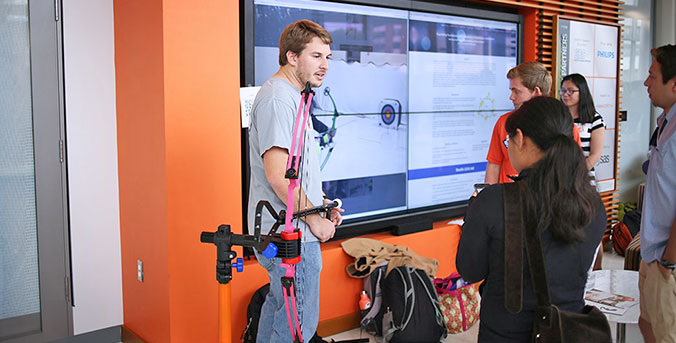
Hands-On Projects
Clemson's Creative Inquiry program aims to empower undergraduate students to work on research and design projects stemming from their own curiosity or from the pressing needs they observe in the world around them. The students have the freedom to design and work on any project that interests them, and as a team, they are developing a number of problem-solving technologies.
The education for healthcare workers in developing countries is often limited, so it is vital that they have devices that they understand how to use but, at the same time, are comparable to higher-end equipment.
“As part of a Global Health Design Creative Inquiry course, our team worked to design a breast pump to achieve 3 goals: To design a pump that could be used in both rural and urban settings of Tanzania, to incorporate a method to kill HIV to prevent transmission from mother to child, to store breast milk without refrigeration by killing the harmful bacteria that cause milk to sour. I am very passionate about global health and engagement.”
Alex HarrisonB.S. '18, M.Eng '19
Schedule a Tour
The College of Engineering, Computing and Applied Sciences invites prospective undergraduate students to visit campus to learn about the programs and facilities. The tours are led by students currently enrolled in the College of Engineering, Computing and Applied Sciences. To register or learn more about our tours, visit the College's Tour Page. The Bioengineering option is under the Academic Information on the tour request form.
For graduate program tours, please email the program contact. Allow 1-2 weeks' notice before visiting so that you may be able to meet faculty and current students and attend some classes.
Undergrad Tour Graduate Tour
Career Paths
Often, individuals are drawn to bioengineering for the opportunity to blend their interests in biology and engineering, contribute to healthcare advancements, engage in innovative projects, and make a meaningful impact on the well-being of individuals and communities. The field's combination of scientific exploration, problem-solving, and potential for societal benefit often makes it a fulfilling and intriguing career choice. Students graduating from Clemson with a degree in bioengineering and biomedical engineering are employed by some of the following corporations.
- BMW
- Merck
- Johnson & Johnson
- GE
- FDA
- Arthrex
- Michelin
- St. Jude's Medical



